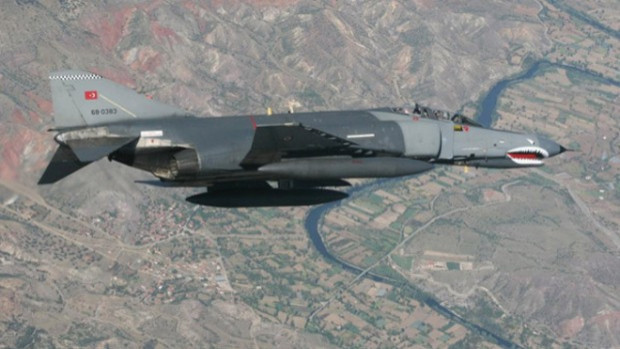Turkey Calls NATO Meeting On Warplane Incident, As More Syrians Defect

Six senior Syrian military officers, including a general, have defected to Turkey, amid worries that Ankara may retaliate for the shooting down of one of its warplanes by Syria over the weekend, according to reports.
Other reports claim that at least 30 Syrian military personnel crossed into Turkey to defect.
Tens of thousands of Syrian refugees have already fled across the border to Turkey, living in tents, since the outbreak of the revolt against President Bashar al-Assad 16 months ago.
An unknown number of Syrian soldiers have also defected, but most of them are believed to be low-level conscripts. Turkey has openly supported these defectors, who have formed the bulk of the Free Syrian Army opposition group.
Meanwhile, NATO will meet in Brussels on Tuesday in an emergency session to discuss the incident on Friday, in which a Turkish warplane was shot down by Syria for having allegedly strayed into Syrian airspace.
The Turks claim that its fighter jet was shot down in international airspace, therefore making Syria’s actions a grave threat to its security.
Turkish Foreign Minister Ahmet Davutoglu told Turkey's TRT television network that Damascus gave no warning before opening fire. The F-4 Phantom jet was apparently on a routine training mission to conduct a radar system test.
The Syrians knew full well that it was a Turkish military plane and the nature of its mission, said Davutoglu.
Nobody should dare put Turkey's [military] capabilities to the test. We will bring this affair before public opinion and international law in the name of Turkey's honor.
Both pilots from the Turkish jet remain missing.
Syrian officials admit Syrian air defenses shot down the plane, but insisted it crossed into Syrian airspace.
The Syrian defense forces used an anti-aircraft gun with the longest range of 1.2 kilometers. We can confirm the damage was caused by anti-aircraft fire. We didn't use radar for this action. Foreign Ministry spokesman Jihad Makdissi told a news conference on Monday.
What happened was an accident and not an assault as some like to say.”
He added: Syria was merely exercising its right and sovereign duty and defense. There is no enmity between Syria and Turkey, but political tension [does exist] between the two countries.
The episode was clouded in mystery early on when Turkey could not confirm if the aircraft was shot down or simply crashed into the sea off the Syrian coast.
As a member of NATO, Turkey may seek retribution against Syria for what it views as an unprovoked attack -- an attack against one NATO member is considered, under the alliance's charter, an attack on the entire group.
Other prominent Western voices have already taken Turkey’s side.
British Foreign Secretary William Hague warned that Syria should not make the mistake of believing that it can act with impunity. It will be held to account for its behavior.”
Similarly, U.S. Secretary of State Hillary Clinton condemned the brazen and unacceptable act by Syria and promised her country will help with NATO’s investigation of the incident.
It is yet another reflection of the Syrian authorities' callous disregard for international norms, human life, and peace and security, Clinton said in a statement.
The European Union (of which Turkey is not a member) has urged Ankara to exercise restraint in its dealings with Syria but has vowed to tighten sanctions against the Assad regime.
Regardless of how the NATO meetings turn out, relations between Turkey and Syria (once strong allies) have plunged to a new all-time low.
Turkish Prime Minister Recep Tayyip Erdogan has repeatedly condemned Assad for his brutal crackdown on opponents and has attempted to further isolate the Damascus regime from the outside world.
However, Jonathan Marcus, BBC’s diplomatic correspondent, commented that Turkey will likely not take overt action against Syria.
“For now at least, Ankara is looking for a concerted diplomatic response rather than taking military action of its own,” he said.
“At the very least the downing of the Turkish jet risks a dangerous new twist in the Syrian crisis. Since the start of the unrest, concern at the escalating loss of life inside Syria has been coupled with fears that the violence could move beyond Syria's own borders prompting a broader regional conflagration.”
He added: “Many will wonder if this episode brings the likelihood of direct external military intervention in Syria any closer. The answer is probably no. The situation on the ground is complex and messy and few countries have much appetite to become involved. In addition the shooting down of the Turkish jet is a reminder of the capabilities of Syria's air defenses, which are far more extensive than those of Libya, which still required a full-scale U.S. air campaign to destroy.”
© Copyright IBTimes 2024. All rights reserved.





















